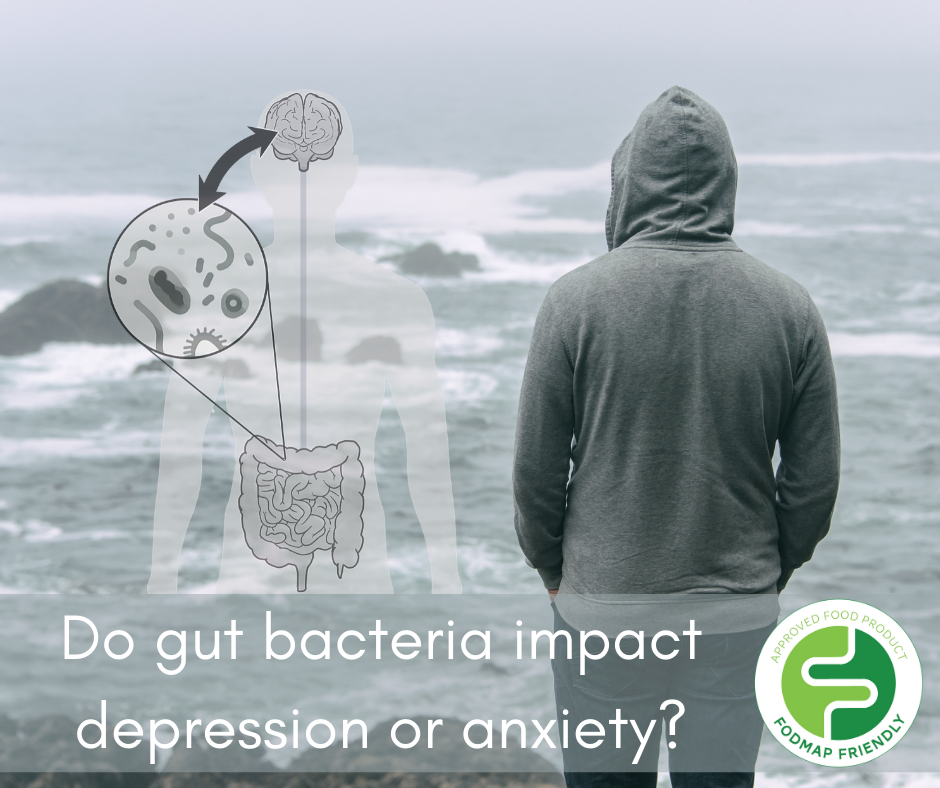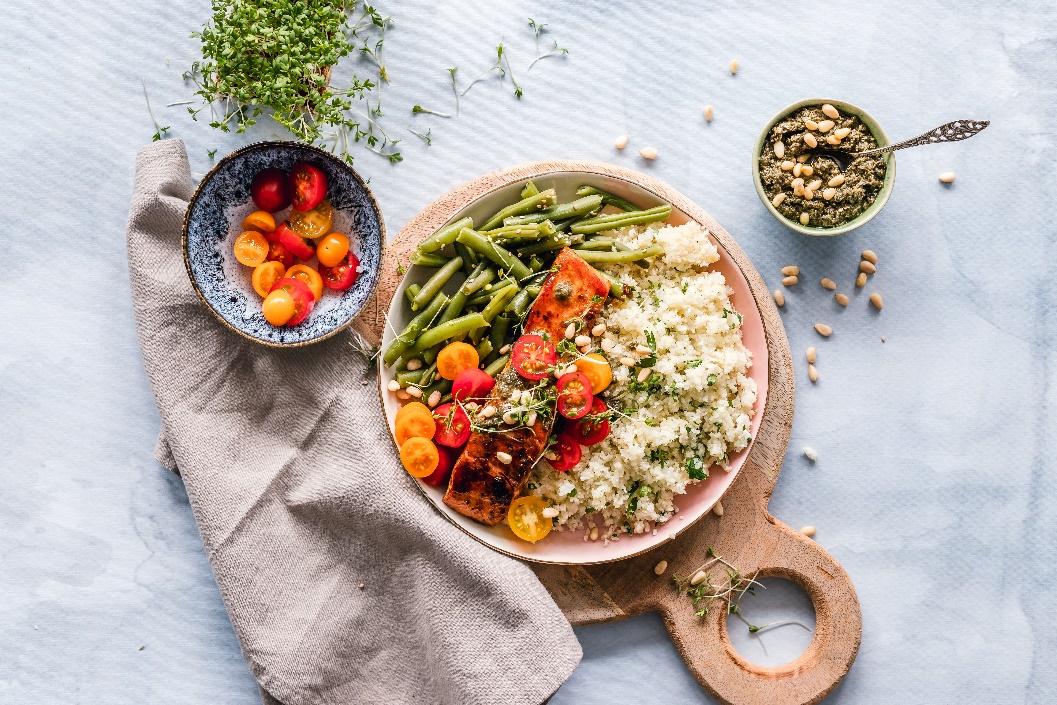The Gut Microbiome: Do our Gut Bacteria Impact Depression and Anxiety?
Posted on November 25, 2020
Have you ever had the feeling of butterflies in your stomach? Or just had a general gut feeling about something? Turns out, our guts are actually pretty intelligent and almost act like a ‘second brain’. A reason for this could be the trillions of microscopic bacteria that are in our digestive system called the gut microbiome. These bacteria are essential for food digestion and our immune system.
Did you know that particular bacteria in our gut microbiome may actually cause changes to our brain chemistry and mental health? And that our mental health can also affect these bacteria? Scientists call this the Gut-Brain axis and it is a particularly new (and fascinating) area of research.
How are the brain and gut bacteria connected?
We have brain cells called neurons that send and receive information in our bodies. Did you know we also have neurons in our guts too? The neurons in the brain and gut are connected by a long nerve called the Vagus nerve. When there is too much or too little of a particular bacteria in our gut microbiome, the Vagus nerve picks up this signal and delivers incorrect messages to the part of the brain responsible for emotion – the amygdala. Researchers have found that people with Irritable Bowel Syndrome have significantly higher levels of the Firmicutes bacteria, while displaying lower levels of Bacteroidetes and proteobacteria. This is a similar bacteria composition to those found in people with generalised anxiety disorder and depression.
How do our gut bacteria affect our mental health?
Many people who suffer from IBS symptoms may experience depression and / or anxiety. People who suffer from IBS may find that one condition makes the other worse which can result in a vicious gut-brain cycle. It is not uncommon for people to experience extreme anxiety in anticipation of IBS flare ups (due to work and social commitments). When we get stressed, our brains release high amounts of a hormone called cortisol. Cortisol affects our bodies in many ways, but Dietitians are particularly interested in what it does to our gut. For people with IBS who suffer from chronic stress, cortisol can change the composition of gut bacteria and can even increase intestinal permeability (how efficient our intestines are at absorbing nutrients). This change in bacteria levels and intestinal permeability can then worsen IBS symptoms, continuing this cycle and increasing mental health conditions. Fortunately, this cycle works in both directions and some IBS symptoms can be eased if treatments for depression and anxiety are undertaken. In this blog, we explore how to recognise when we are trapped in a gut-mind spiral and some tips to stop this cycle.
Our tips to manage the Gut-Brain cycle:
Mindfulness
Mindfulness activities help identify and break the gut-mind spiral. Activities such as yoga and Tai chi boost circulation around the body, easing IBS symptoms. In fact, mindfulness activities have been shown to be more effective in treating IBS conditions when used alongside low FODMAP diets. Other mindful activities such as deep breathing and meditating help distract from anxious thoughts when we are feeling agitated. When mindfulness activities are well practiced, our brains automatically switch on these mindful behaviours when our body is in a high stressed state. This can be helpful in dealing with days where IBS symptoms are unfavourable.
Eat Low FODMAP
If you have been feeling unwell recently, try returning to a low FODMAP diet, even if it is just for a few days. Keep in mind this is not a setback! Low FODMAP foods are always safe to eat, with many people finding fast relief from uncomfortable IBS symptoms. Remember that low FODMAP isn’t a ‘forever diet’! It is an excellent way to eliminate any IBS symptoms and pinpoint any problematic foods. Normally, people undergo a low FODMAP diet for 6 weeks, then slowly incorporate foods back into their diet over the following weeks once the elimination phase is over.
Take it easy! Start with easy to prepare/quick meals
It is understandable that the idea of returning to a low FODMAP diet is daunting! The amount of knowledge and time required to prepare healthy meals may put people off from eating low FODMAP. However, the second time around is often much easier, as you will have retained a lot of information about what products are safe for you. It is also important to start off with easy to prepare meals. This way you’re more likely to stick to a low FODMAP diet and see better results. If concerned about figuring out what to eat, try sitting down and making a meal plan for the week ahead. You may find this lowers any uncertainty or stress regarding meal preparations. See all our FODMAP Friendly low FODMAP Recipes and the FODMAP Friendly App (Android or iPhone) to help!
Oligosaccharides
Foods that may help restore the gut microbiome contain complex sugars known as oligosaccharides, the ‘O’ in FODMAP. Oligosaccharides are found in high fibre foods including wholegrain bread, fruit, vegetables, nuts and dried beans. Consumption of these foods stabilise bacteria in our microbiota, helping our gut health thrive. Being a FODMAP however, these foods can also cause some of the recognisable IBS symptoms, making our physical and mental health worse. It is important to minimise these foods while on the low FODMAP diet until IBS symptoms ease. It’s important to note that while FODMAPs are good for our gut microbiome, they should be slowly reincorporated back into the diet once the elimination phase has finished.
Talk to a Dietitian about Probiotic use
Research has shown that probiotics can alleviate bloating, abdominal pain and discomfort symptoms in some people suffering with IBS. A Dietitian may advise whether this is a suitable choice for your circumstances.
Seek Psychological Counselling when needed
We recognise that it can be extremely difficult to identify whether mental health conditions or physical symptoms are the root to the IBS cause. Psychologists are trained in breaking the mind-gut loop that may be worsening the physical symptoms of IBS. They are also a fantastic resource to help you with ongoing support and progress during difficult time periods. Talking to your GP is a great way to learn more about counselling. Beyond Blue and Headspace are also great places to start if you are looking for information at home.
In summary
It is very normal for people with IBS to experience depression and anxiety, particularly during symptom flare ups’. Changes in bacteria may cause inflammation in our guts which sends distressed information to the brain and may lead to depression and / or anxiety episodes. In turn, depression and anxiety in response to these symptoms may exacerbate the inflammation in the gut which can alter the bacteria in our microbiome. Limiting the amount of FODMAPs consumed and mindfulness can greatly assist in stopping this cycle.
Written by Sara Weedon (Nutritionist)
Reviewed by Kiarra Martindale (Accredited Practising Dietitian)













